Video Feature & Web-Exclusive Interview
Artist: CARRIE RODRIGUEZ
Video: “I Dreamed I Was Lola Beltrán” from the album Lola
CARRIE RODRIGUEZ FEATURED AT BLUE ROCK ALIVE! VIRTUAL SUMMER CONCERT SERIES
Carrie Rodriguez will be the featured artist this Thursday (August 6) at Blue Rock aLIVE!—a unique virtual summer concert series—featuring iconic Austin-based artists every Thursday this summer. Blue Rock is a good example of innovation, quality and creativity. Each event is produced in broadcast quality audio-video from Blue Rock’s renowned Texas room—streamed straight to you. When you buy a Season Pass for $105 (https://bluerocktexas.com/events), you send in your headshot—and they place it on a seat, so you will literally be sitting in the room.
Rodriguez, a singer-songwriter from Austin, Texas, finds beauty in the cross-pollination of diverse traditions. A passionate performer, she effortlessly melds fiery fiddle playing, electrifying vocals and a fresh interpretation of new and classic songs with an “Ameri-Chicana” attitude. She’s an Austin native who began playing violin at age five. Her training quickly became the passion and focus of her childhood, and by age 10, she had performed as part of a group at Carnegie Hall. She continued the classical track in her first year at Oberlin Conservatory, then shifted gears to pursue her true love affair with the fiddle—staying true to her Texas roots—at the Berklee College of Music.
Carrie Rodriguez has carved an indelible path while balancing two cultures and making a palpable impact with her music. Rodriguez lives in Austin with her partner and musical collaborator Luke Jacobs, a multi- instrumentalist/singer-songwriter from Minnesota, and their 4 year old son, Cruz. We talked with Carrie Rodriguez about her love for songwriting, how she steps back and sees the bigger picture, her love for telling stories that are meaningful like her passionate musical about a DACA recipient, following in her great aunt’s footsteps and how music has always been the most powerful therapy.
CARRIE RODRIGUEZ Interview
with M Music & Musicians magazine publisher, Merlin David
Tell us about one of the songs you’ll play at Blue Rock this summer.
“I Dreamed I Was Lola Beltrán” is a tribute to my favorite era of Mexican music. My great aunt, Eva Garza, was an amazing vocalist and performer of the late 1930s through the 60s. In this song, I name some of her contemporaries from the Golden Age of Mexican music and film (la Época de Oro) such as Lola Beltrán and Javier Solis. The song came from a daydream I had as I was going through old black and white promo photos of my great aunt. I imagined what it would have been like to be inside a glamorous supper club during my great aunt Eva’s heyday. Everyone would be dancing and dressed to the nines—and the music would be as romantic as it gets.
How has family influenced your music?
More than anything, the discovery of my great Aunt’s music has influenced me over the past five years. When I was growing up, my grandmother would always talk about my older sister with such reverence and I thought she was exaggerating. She would tell me how her sister was in all these Mexican films, was such a superstar and got her start singing on Voice of America, which at the time was broadcast from Radio City Music Hall—to troops stationed all over the world. So, she got to be well known in Central and South America.
When did you realize she was famous?
I always heard these legends and I knew there was some truth, but it wasn’t until my grandmother sent me a stack of CDs in the mail that she had digitized from vinyl recordings. This was many years ago while I was living in New York City. I put the first one on, sat down on the couch and started weeping. I couldn’t believe this was my great aunt. She died very young in the late 60s, in her late 40s, and she was much older than my grandmother, so I’d never met her. She had a deep alto voice with a huge range—so passionate, so raw.
What about these recordings surprised you the most?
The recordings are exquisite—some with big orchestras. She did some recording in Cuba, some with big Mariachi bands. She did a lot of Agustín Lara covers [one of Mexico’s most well-known and most prolific composers]. I was just completely floored by the breadth of her work and the power of her voice. I couldn’t believe this was somehow a part of me—this tiny bit of DNA that might be in me.
Before hearing her, did you sing in Spanish?
At that point in my musical journey, I had only been singing in English. I felt pretty uncomfortable singing in Spanish. It’s not my first language. I learned it as a late teen. My ex-husband was from Spain and that’s actually how I learned Spanish—because we spoke Spanish at home, not because I’m Chicana. My father, who was Mexican-American, understood Spanish and spoke it a little bit when he was in school in the 60s, but he got in trouble for speaking Spanish in public schools. Many of that generation didn’t pass on Spanish to their kids—because they weren’t even allowed to speak it in school.
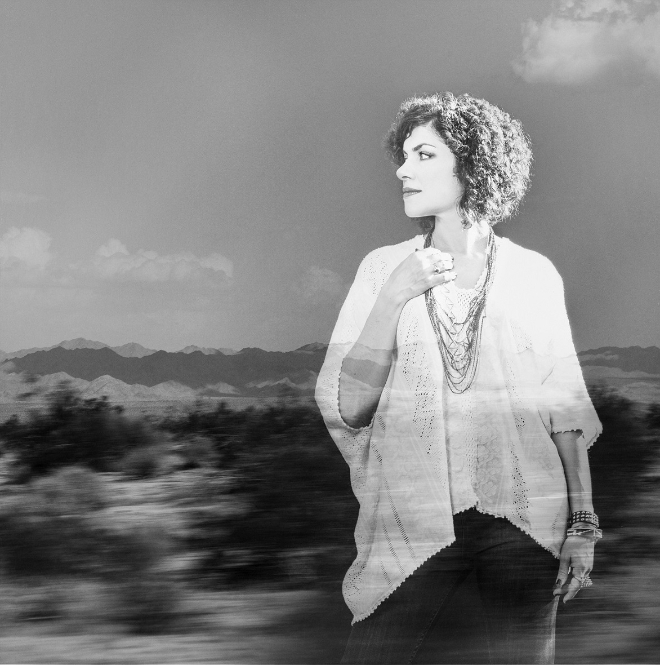
When did you start singing in Spanish?
My journey with Spanish language has been later. It wasn’t something I grew up doing. Hearing my great Aunt really inspired me to try Spanish. Little by little, I started adding Spanish into my sets. I would close the show with a song in Spanish as an encore—and got tremendous positive feedback. People wanted me to record a full album in Spanish. It took years of getting more comfortable with my voice in Spanish because it’s almost a completely different Carrie that comes out.
How do you choose songs for an album?
This last record Lola, in the beginning, was meant to be all in Spanish. But as I got started, the record just needed to be more of who I am—which is half Gringa and half Mexican-American. Though I started speaking Spanish later in my life, I was strongly connected with both sides. I am in awe with the culture all around me in Texas. I did half the album in Spanish, some of my favorite Mexican songs written by some of my favorite Mexican composers, and the other half was original songs that I wrote which ended up being in Spanglish.
Tell us one thing you learned about yourself after you recorded Lola.
I put out an album of songs this past January from my new musical ¡Americano! that premiered in February 2020. But Lola was my last solo record. My favorite way to record has always been to gather the greatest and most soulful musicians I know, together in a room, along with a top notch engineer and brilliant producer, and play music—live. Very few overdubs, if I can help it. I have made my last few records this way, but the one thing that was different with Lola was that I was also seven months pregnant. I was a little worried that it would affect my singing as I had heard a few horror stories of pregnancy hormones changing women’s voices. Also, having the baby pressing against your diaphragm can leave you feeling more winded. However, I was shocked at how easy it was to sing. I felt like singing while pregnant gave me super powers. (Laughs)
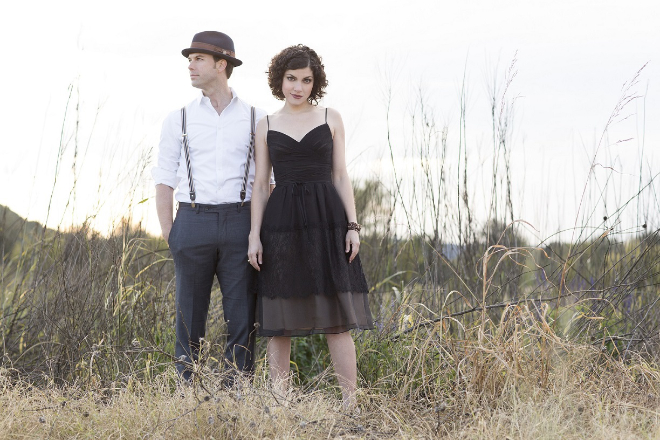
Carrie and Luke 2013 Live
How was it different from other recordings?
It was the first record I’ve ever made where I didn’t do a single vocal fix. I just sang each song two or three times live with the band, then picked my favorite take. It truly felt effortless. It probably wasn’t the pregnancy that made singing so easy. It was probably working with brilliant producer Lee Townsend along with Bill Frisell on guitar, Viktor Krauss on bass, Brannen Temple on drums, David Pulkingham on nylon string guitar and my husband Luke Jacobs on pedal/lap steel. I mean, how can you go wrong with that group of humans?
Tell us about your songwriting process.
Usually, my favorite songs come to me quickly and almost fully formed. I’ll be on a jog and the song appears in my head. I go home and quickly record it on my iPhone. There is some crafting to be done afterwards, but those are usually the ones I like the most. If I ever have to write a song about XYZ, those are always a struggle.
Is it difficult to write about specific topics?
I feel I have to do more of that. I recently wrote songs for an original musical [¡Americano!] that premiered in February at The Phoenix Theatre. I was the lyricist and composer. I probably wrote 30 songs and we ended up using 20. Every song had to be about a very specific event in the musical story. It was incredibly challenging and probably the best songwriter workout I could ever have—songs written to such specific assignments. It showed me that if you are persistent and stay at it, it can be done.
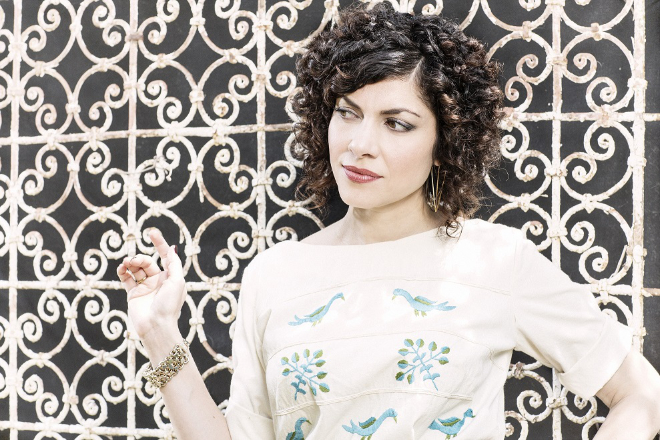
How do you refrain from forcing the songwriting?
The subject matter was so close to my heart. Any time I ever felt frustrated, I took a step back knowing this opportunity was so great. The musical is a true story about a dreamer, a DACA recipient [Deferred Action for Childhood Arrivals], who grew up in Phoenix and moved here with his family when he was two years old. They did not tell him that he wasn’t an American citizen. Growing up, he thought he was from Phoenix. All through his childhood, his dream was to become a marine—he studied about marines, he was so patriotic and was ready to enlist. On his 18th birthday, he went down to the recruiter who started asking him questions like ‘Why don’t you have a social security number?’ By the end of that conversation, he realized he had to go back home and ask his parents these tough questions. That’s when he found out he wasn’t an American citizen and could not join the marines.
Sounds like a challenge.
This musical is all about what happened after that conversation and how he ended up contributing greatly to his country without documentation—just by perseverance. He started a nonprofit that helps politicians (who help immigrants) get elected. He has helped so many people get elected and he’s met with President Obama—this guy is amazing. So, to get to tell his life story was such an honor. In those very frustrating moments when I realized, ‘oh my—I have to write a song with four different points of view about a meeting at city hall and make it fun and musical’—I tried to step back and see the bigger picture.
Who originally inspired you to write songs?
My first touring gig out of music school was playing fiddle with songwriting heavyweight Chip Taylor. He is most known for writing “Wild Thing” and “Angel of the Morning,” but he has written so many other poignant and emotionally powerful songs since then, and continues to do so. I had just graduated as a violin performance major from Berklee College of Music, and had never really considered writing my own songs, let alone singing in public. After a few weeks out on the road with Chip, he soon started encouraging me to sing some harmony (not just play the fiddle), which eventually led to writing songs together. We ended up releasing three full-length duet albums. Chip is very much a stream of consciousness type of songwriter. Just watching him go through the process taught me so much about letting what is unique and true to you come out first. It’s almost like channeling from something beyond our everyday level of consciousness. The intellectual craft of songwriting is also necessary, especially to finish a song. But that first seed of inspiration is what it’s all about.
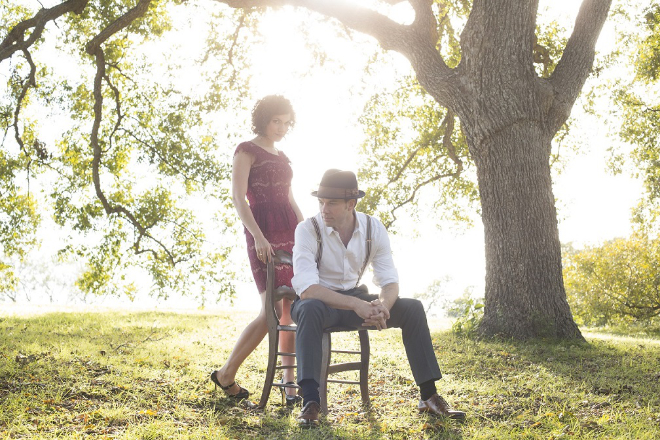
Carrie and Luke 2013 Live
What songwriting tip would you like to offer?
I’m a big believer in the sound and rhythm of words. When I’m first beginning a song, I don’t worry about what specifically I’m saying—it’s more about how it sounds. Certain words, when they come out with the right rhythm and melody—it just feels good. It makes you feel something. I’m looking for that—more than specifics. Then I go back with a few ideas that feel good. I try to figure out what I’m trying to say—and how I can craft this. Even with the musical, I still approached it like that—just looking for those simple grooves and feels of words that make you go ‘oh, yeah—that’s cool.’ I watched Chip Taylor do that over and over again. I think he is the master of words that feel good. Who knows what “Wild Thing” means—it just feels so good to sing it.
Which Top 5 Musicians inspired you to become a musician?
My father, David Rodriguez—was a Texas singer-songwriter who wrote socially conscious songs that still ring true today. Some of my first memories as a toddler are of him singing these hard-core political folk songs to me—as bedtime lullabies.
Itzhak Perlman—my mother took me to see him play in Austin when I was five years old. At that moment, I knew I wanted to play the violin for the rest of my life.
Lyle Lovett—gave me an opportunity to sit in with his Large Band when I was a freshman in college. It was eye opening and inspiring, to say the very least.
Bill Frisell—one of my favorite musicians on planet Earth. Everything he touches instantly becomes more beautiful.
Bill Dick—my violin teacher. He taught me, starting in public school at age 5, and continues to do so to this day.
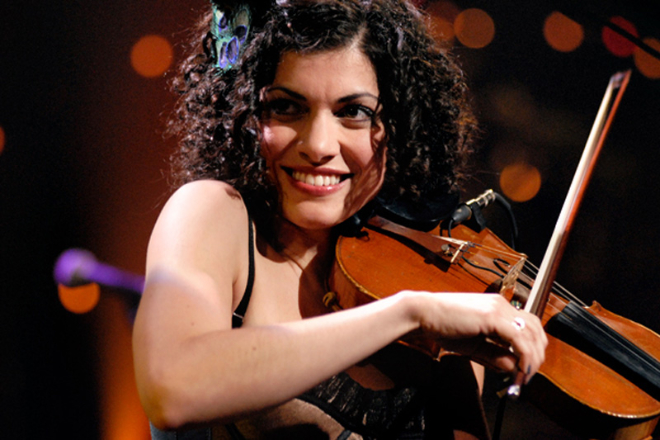
What are your Top 5 favorite albums of all time?
John Coltrane and Johnny Hartman (1963) – John Coltrane and Johnny Hartman
Wrecking Ball (1995) – Emmylou Harris
Getz/Gilberto (1964) – Stan Getz and João Gilberto (featuring Antonio Carlos Jobim)
Both Sides Now (2000) – Joni Mitchell
Songs of Leonard Cohen (1967) – Leonard Cohen.
What is the best advice someone has given you?
Chip Taylor gave me some advice when I was first starting to sing. He told me that the most important part of singing was believing the song you are singing—being inside the song, the story of the song and thinking of nothing else. He stressed the importance of feeling a song over perfection in execution or delivery. At the end of the day, the most important aspect of playing music is the connection with the listener. We play music because we need to feel things and express things that words alone sometimes can’t. When you can share that kind of emotion with people in a room—it’s a powerful thing. You don’t need to be the most proficient musician in the world to achieve that.
Tell us what’s unique about Blue Rock.
What Billy & Dodee Crockett are doing is such a great way to share music with people. Blue Rock has a beautiful stage with state-of-the-art equipment and video. It’s really a cool place, and the way they are doing it is super smart. I feel really good to be a part of it.
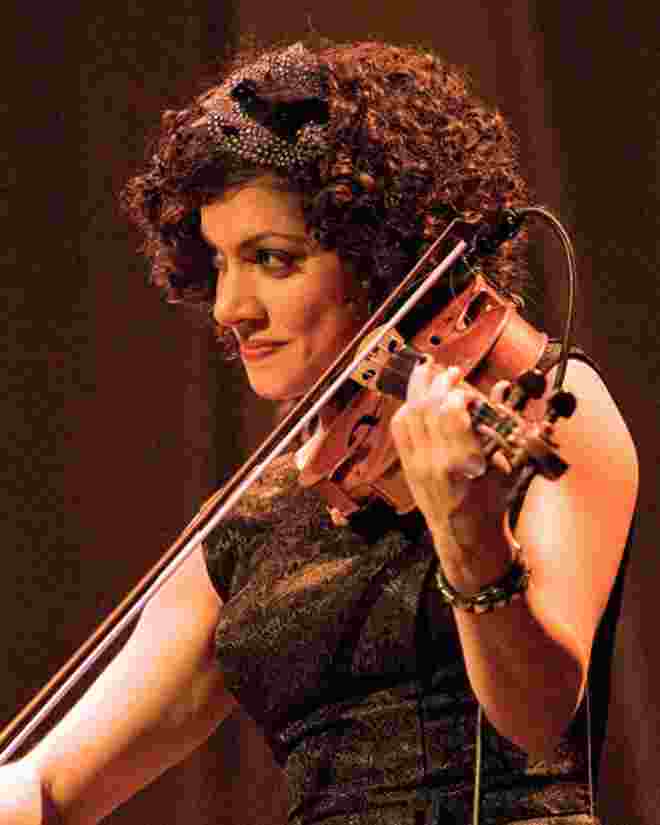
How do you remain hopeful in this strange and unique time?
My four year old son, Cruz, helps a lot. Experiencing life through the eyes of a child is such a gift right now. He’s been teaching me to notice more—on our daily nature walks, for example. I can now name all of the wildflowers at our local park. Connecting with people through music also helps. As soon as quarantine started, my husband Luke and I started a video series called “A Song for You.” We record individual songs that feel right for the moment, aided by our “producer” (the four year old), then share them with the world. We also take requests. The process of recording and sharing these songs with everyone helps me feel more connected and at peace. Music has always been the most powerful therapy for me.
Where can new fans get more info and stay updated?
Website: https://www.carrierodriguez.com/
Carrie Rodriguez has a new video series that she adds to weekly (started since the second week of the quarantine) called A Song for You: https://www.carrierodriguez.com/a-song-for-you
Social Media:
Instagram: @carrierockriguez
twitter: @carriemusictx
Facebook: https://www.facebook.com/carrierodriguez/

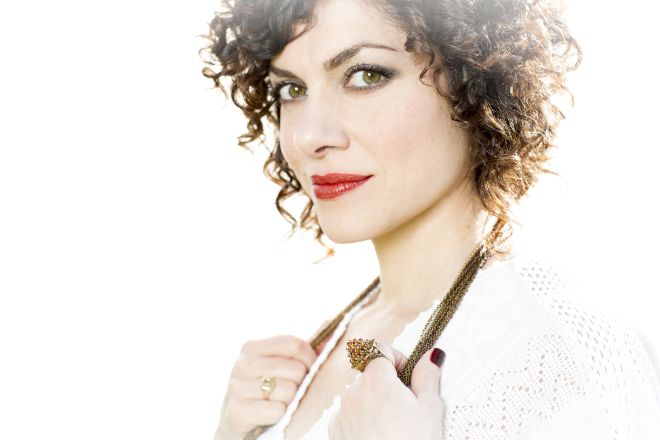



comment closed